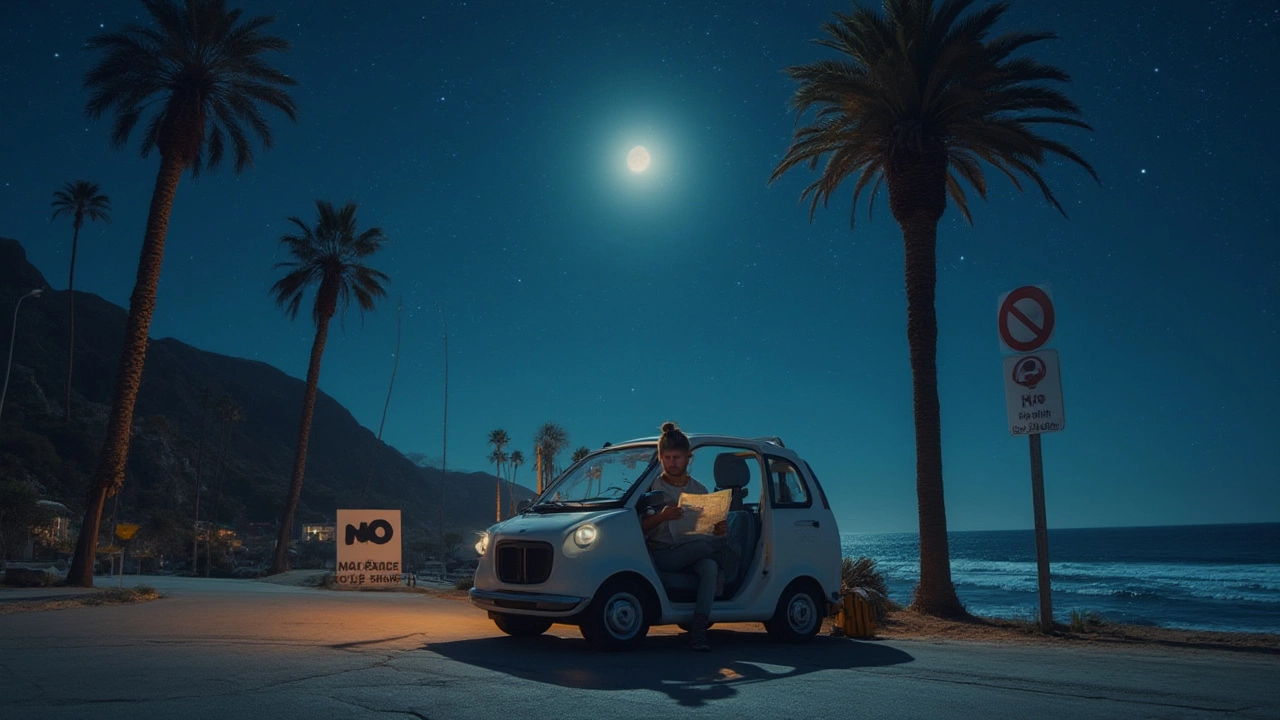California Beach Parking Laws: Quick Guide for Car Campers
If you’ve ever pulled up to a sunny California shore and wondered where you can legally park, you’re not alone. The rules can feel confusing, but knowing a few basics saves you from fines and a ruined vacation.
First off, every city and county along the coast sets its own parking limits. Some beaches let you stay for a few hours, others ban overnight parking completely. The best move is to check the local sign right when you arrive – it usually tells you the maximum stay time and any specific restrictions.
Know the Basic Rules
Most beach towns allow daytime parking for up to 2‑4 hours in designated lots. Look for white‑painted lines or a sign that says "2‑Hour Parking". If you see a red curb, that means no stopping at any time.
Overnight parking is a different story. In places like Santa Monica and Malibu, you’ll find “No Overnight Parking” signs everywhere. If you ignore them, you risk a ticket, a tow, or both.
Free parking is rare on popular beaches. Expect to pay at a meter or a pay‑by‑phone zone. These meters usually accept credit cards or a mobile app. Set a reminder on your phone so you don’t forget to extend the time.
Tips to Avoid Tickets and Keep It Easy
1. Arrive Early – The early birds get the best spots and often avoid the busiest hours. This also gives you time to read signs before you settle in.
2. Use Official Lots – Municipal lots may cost a little extra, but they’re clearly marked and monitored. Plus, they often have restrooms and trash cans.
3. Know the “Free Camping” Myths – Some online guides claim you can camp for free on certain cliffs or hidden bays. Those spots are usually private property, and you could be asked to leave or face a citation.
4. Check Local Websites – County parks departments post up‑to‑date parking rules. A quick Google search for the beach name plus "parking" will often bring up a PDF or city page with the latest info.
5. Respect the Environment – Keep your campsite clean, use designated waste bins, and stick to existing fire pits if they’re allowed. Cleanliness helps keep parking areas open for everyone.
When you’re unsure, err on the side of caution. Pull over to a nearby downtown street parking spot, pay the meter, and walk a short distance to the beach. You’ll avoid fines and still enjoy the waves.
Finally, remember that California’s coastline is a shared treasure. Following the parking laws not only protects you from tickets but also helps preserve the beaches for future travelers.
Now you’re ready to hit the sand, set up your car camp, and relax without worry. Safe travels and enjoy the California sunshine!
-
 VIEW POST
VIEW POSTCan You Sleep in Your Car at California Beaches? Rules, Risks & Tips
Jul, 27 2025|0 CommentsThinking of sleeping in your car at California beaches? Here's what you need to know about local rules, risks, and smart tips to avoid fines or trouble.